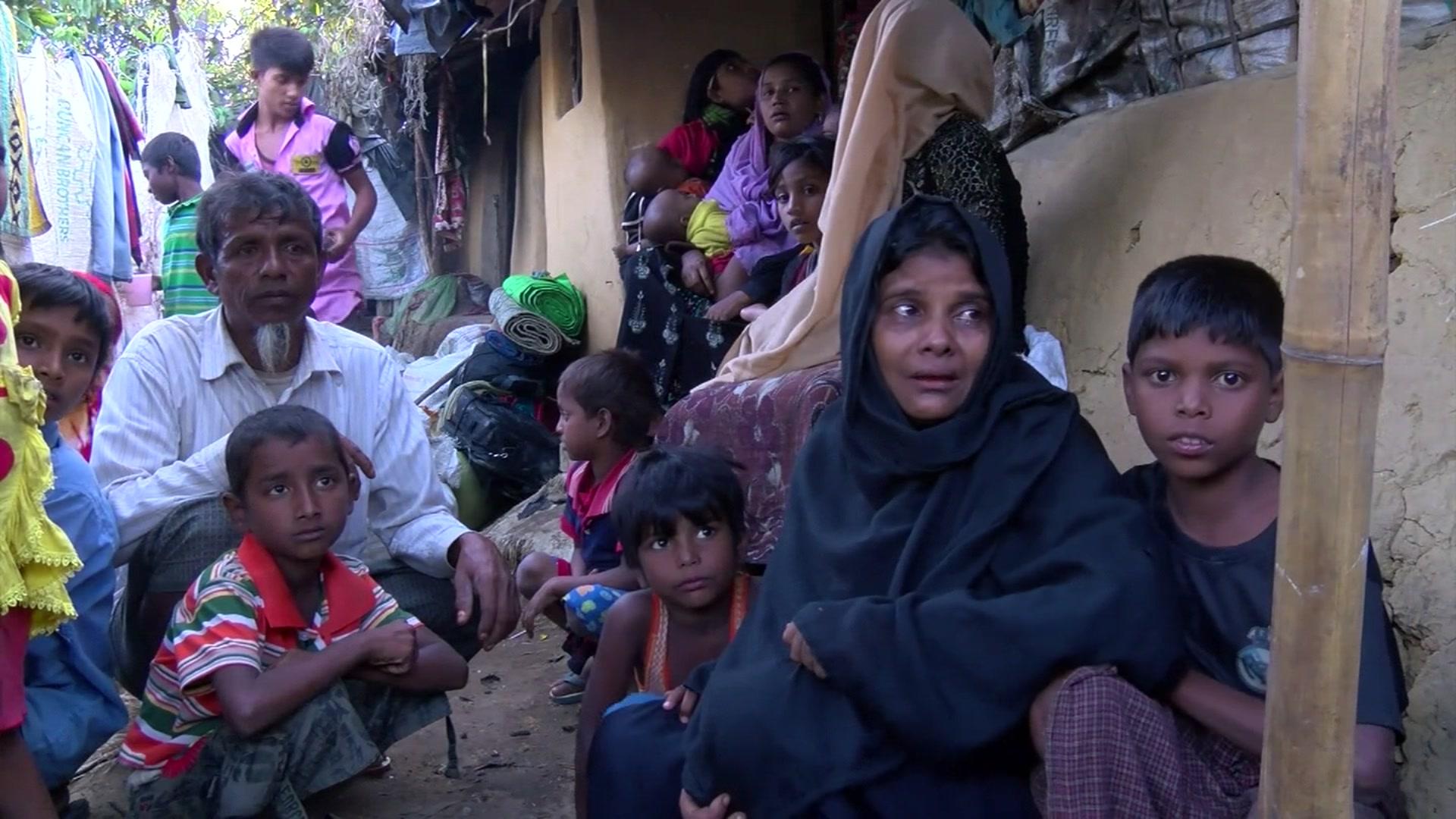Myanmar: UN to probe 'killings and rapes' of Rohingya
- Published
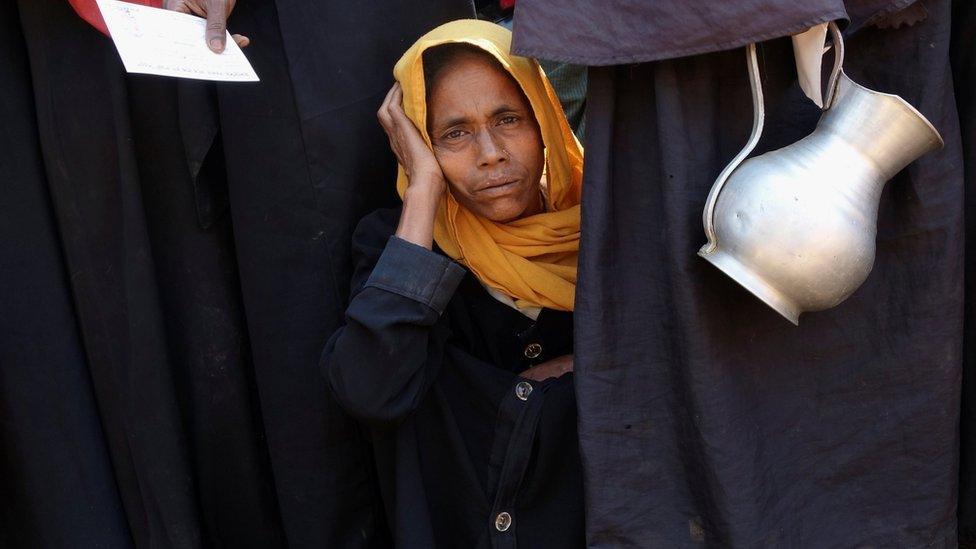
Tens of thousands of Rohingya Muslims have fled to Bangladesh
The United Nations human rights council is to investigate alleged human rights abuses by Myanmar's army against the country's Rohingya Muslim minority.
Some 70,000 Rohingya have fled Myanmar into Bangladesh in the last six months, and the UN has gathered accounts of gang rapes and mass killings.
A Burmese official said the move was "not acceptable" as Myanmar was carrying out its own investigation.
China and India did not back the decision, however.
The two countries said they would "disassociate" themselves from the UN probe.
Rohingya Muslims "hated and hounded from Burmese soil"
The UN resolution, which was brought by the EU and adopted by consensus, decides "to dispatch urgently an independent international fact-finding mission", with a view to "ensuring full accountability for perpetrators and justice for victims".
The Rohingya say they are being targeted amid a military crackdown on insurgents in Myanmar's western Rakhine state. The campaign was launched after nine border policemen were killed in an attack in October.
Last month, the UN published a a damning report, external compiled after interviews with more than 200 Rohingya refugees who fled from Myanmar to Bangladesh.
Nearly half of those interviewed by the UN said a family member had been killed. Of 101 women interviewed, 52 said they had been raped or experienced sexual violence from the security forces.
The report included accounts of an eight-month old and a five-year-old being slaughtered with knives as their mothers were raped.
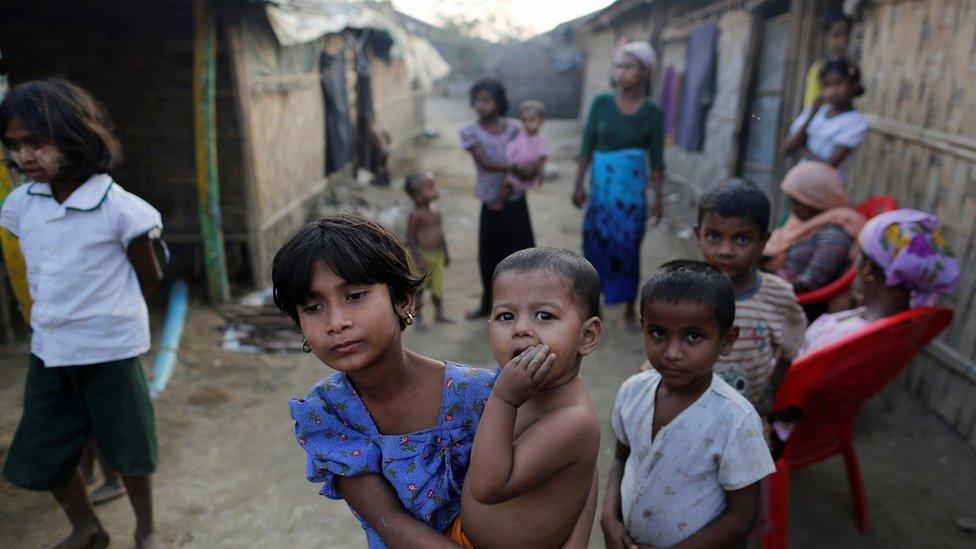
Myanmar's government sees the Rohingya as immigrants and denies them citizenship
The new investigation is at a lower level than the Commission of Inquiry which United Nations special rapporteur on rights in Myanmar, Yanghee Lee, had been seeking. She has accused Myanmar's security forces of committing crimes against humanity.
The team of investigators is expected to give an update in September and to publish a full report in a year's time.
The BBC's Myanmar correspondent Jonah Fisher says the country may still block the investigation.
Aung San Suu Kyi, the Nobel peace laureate and former democracy activist leading the new civilian government, will have to choose between upsetting the powerful Burmese army or defying the wishes of the increasingly concerned international community, he says.
A spokesman for her party recently said the abuse allegations were "exaggerated" and an "internal" not "international" issue.
The Rohingya say they are descendants of Arab traders and other groups who have been in the region for generations, but Myanmar's government denies them citizenship and sees them as illegal immigrants from Bangladesh.
About one million Rohingya are estimated to live in western Rakhine state, where an outbreak of communal violence in 2012 saw more than 100,000 people displaced.
Tens of thousands of Rohingya remain in camps where conditions are poor and travel is restricted.
- Published10 March 2017
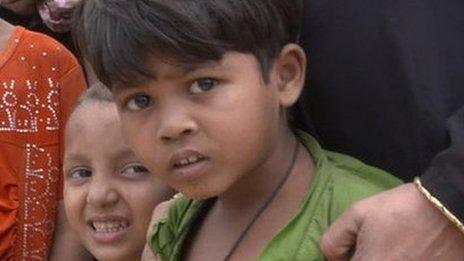
- Published11 March 2017
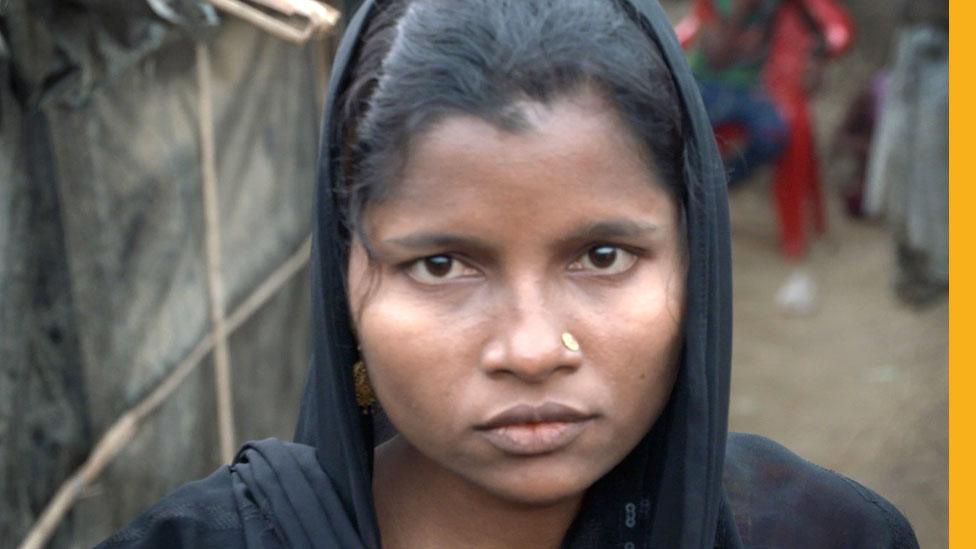
- Published3 February 2017
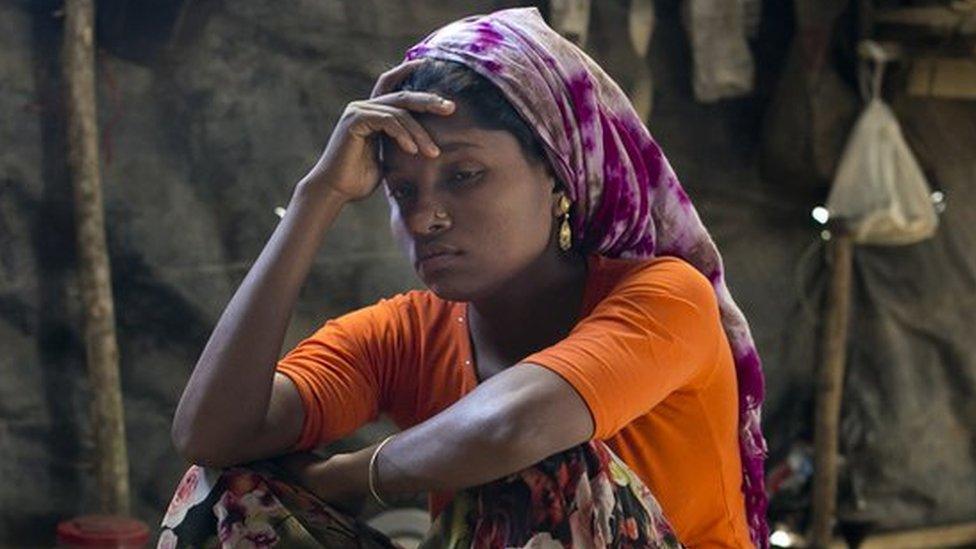
- Published27 January 2017
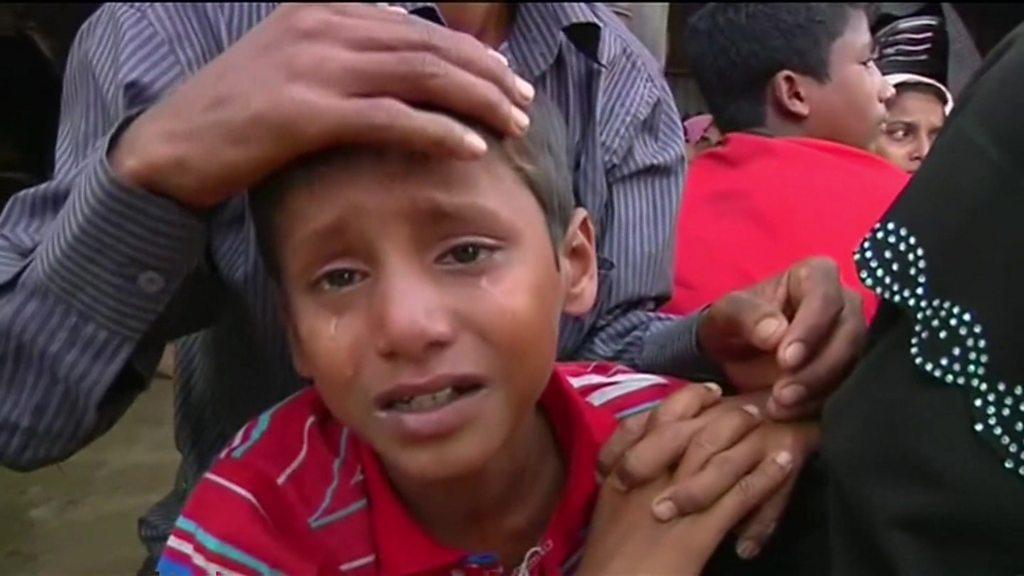
- Published10 January 2017
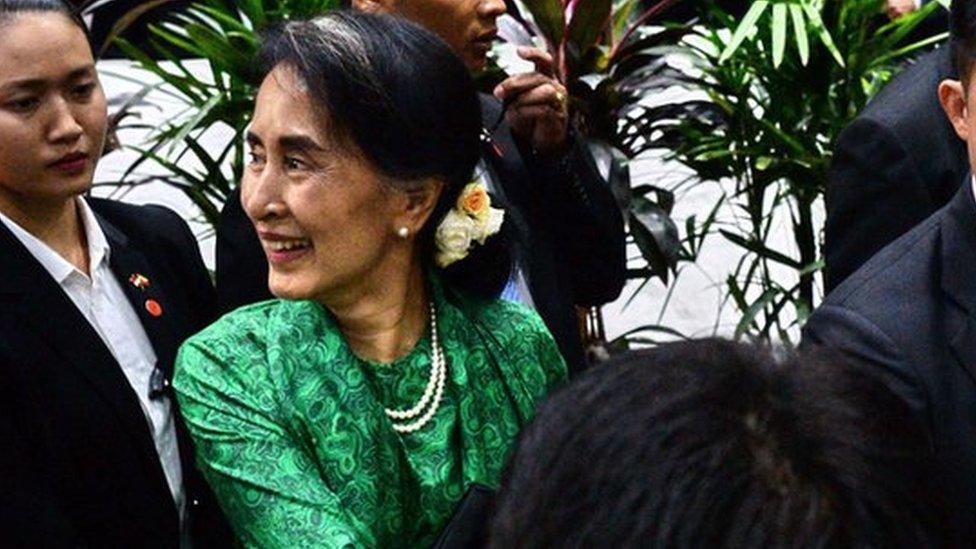
- Published24 November 2016
